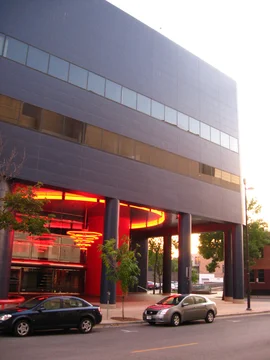
My wife runs a stationery business headquartered right here in the . . . state of Delaware. When she filled out the form to set up her LLC, she listed our address as the headquarters and herself as the person to be served with process.
The filing was rejected. When she called to figure out why, the good people at the division of corporations explained that they constantly have people trying to incorporate in Delaware (for reasons all parties involved would be hard-pressed to explain), but who don't want to pay the corporation trust company to act as a registered agent. So they list a P.O. box or just a random address and call it a day. They assumed that's what she had done. It took her two hours on the phone to convince them that it was our house, where we lived.
No one lives in Delaware.
This Is Going Somewhere Topical, I Promise
I bring this up because of a new opinion by Judge Williams on this transfer trend we've been talking about for the last couple weeks. The upshot of these posts, for those not inclined to click even the most helpful link, is that the Court has transferred a few cases out of Delaware under 1404, based on the relative congestion of the two courts (our little district is perennially among the busiest in the nation).
Judge Williams bucked that trend in a patent case yesterday in Cisco Sys., Inc. v. Ramot at Tel Aviv Univ. Ltd., C.A. No. 21-1365, 22-674 (D. Del. Nov. 14, 2022)—despite citing the same congestion statistics that Judges Connolly and Noreika cited in their recent opinions. Id. at 14.
Although there are obviously many minor differences between the various parties in all these actions, one stuck out to me as particularly interesting for future motions. In the previous cases, the defendant was moving to transfer to a district where one of the parties was headquartered—Florida in one, and Illinois in another.
In Cisco, however, the defendant wanted to move the case to the Eastern District of Texas.
You will be shocked to learn that the parties and actions giving rise to the suit had only tangential and tenuous connections to the ole E.D. Tex.
Nobody lives in Texas either.
All Things Being Equal, The Plaintiff's Choice Wins
The Jumara factors otherwise played out much like you'd expect for a Delaware patent case.
- The plaintiffs chose Delaware, but had no real connection beyond incorporation (and their fancy registered agent).
- The Defendant chose Texas, but it was a foreign entity with no real connection there either.
- The defendant had also previously sued one of the defendants in Delaware on a different patent.
- Congestion is pretty bad in Texas, but worse here in Delaware
All in all, it was enough to keep the case here.
It'll be interesting to see if this trend holds true in other cases where the defendant seeks to move the case to a random forum as opposed to its real homeland. I promise this is the last post on the subject for a while unless I'm really desperate, but we'll stay on top of it for now and let you know how things shake out in a few months.
If you enjoyed this post, consider subscribing to receive free e-mail updates about new posts.




